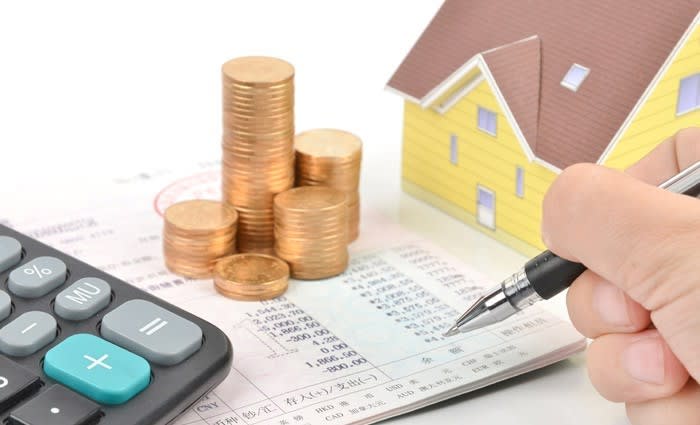Steal an edge on imperfect property markets: Pete Wargent
As a mainly passive investor in equities these days I must admit that I don't pay a huge amount of attention to the daily machinations of the share markets.
That said, judging from the number of angst-ridden articles about why shares must be the way to go and definitely not property I'd say it's a fair assumption that Aussie share markets are now tanking again.
And taking a look at the charts, yep, pretty much.
Having briefly threatened to get back up to 6,000 after nearly eight years of trying the ASX 200 (XJO) is now deflating miserably again, all the way back down 5356.50.
The technicals are looking rather shocking too.

Property markets divergent
Meanwhile, what's been happening in property markets since 2007?


Meanwhile, what's been happening in property markets since 2007?
The Reserve Bank of Australia (RBA) released its latest Chart Packs during the first week of August recording the latest housing prices.
As I expected, beyond the financial crisis the rising tide of household debt could no longer lift all boats, and so far capital growth has been strongest in the two largest capital cities, but considerably weaker elsewhere.
Drivers of markets going forward will include jobs growth, population growth, real wages growth and foreign capital, among a number of other factors.
Predictably the Sydney property market has been the clear standout, with house prices in round numbers having appreciated by ~$400,000 (from ~$550,000 to ~$950,000), or more than a ~70 per cent increase.
The line denoting Sydney would look far steeper if it wasn't for the fact the RBA switched from using a linear scale to a log scale at the end of the first quarter.

At the other end of the scale, Adelaide's median house price has appreciated by around ~$100,000 from ~$350,000 to ~$450,000, or close to a ~30 per cent increase.
Regional house prices in aggregate showed the lowest price growth of under $100,000, the chart following a very similar trajectory to that of Adelaide.
In Brisbane median house prices are below their 2010 peak according to CoreLogic-RP Data(albeit only very marginally) but are now rising.
For my money, Brisbane offers the best "value" of any of the capital city markets, though investors need to be particularly careful about what they are buying, for the reasons well documented here previously.
The trendline below which records investor loans on a 12mMA basis shows that Queensland investor lending in aggregate is now tracking at its highest level since April 2008 and rising.
Click to enlarge

Shares and property
I wouldn't get too bogged down in the whole shares versus property debate, given that these are two fundamentally very different asset classes, both of which have their place in an investment portfolio.
For average investors equities are often best viewed primarily as an income investment (just as well given that there has been no capital growth for close to a decade).
A fundie would justly argue that through skilful stock selection they can beat the market consistently, thereby justifying their fees.
That's fair enough.
The same is true of property markets, really.
Median house price growth across Australia has been fairly mixed in recent years, with Adelaide, Hobart, Perth and Brisbane recording almost no nominal price growth at all since their respective 2010 peaks.
That said, property investors can and do aim to beat median house price growth with quality asset selection.
I can think of at least a hundred ways in which it's possible to steal an edge on imperfect property markets, one of which is alluded to above - buying counter-cyclically.
Another way to manufacture growth is through renovation.
Over the long term a few other tactics might include buying property which is:
-located within a 15 minute commute of the centre a large and growing capital city;
-in a land-locked suburb;
-within a 5 minute walk to a hard rail link or hub;
-comprised of a high land value; and
-an asset type which is in exceptionally high demand but has scarcity value.
There are a great many others, of course.
PETE WARGENT is the co-founder of AllenWargent property buyers (London, Sydney) and a best-selling author and blogger.
His latest book is Four Green Houses and a Red Hotel.
Pete Wargent
Pete Wargent is the co-founder of BuyersBuyers.com.au, offering affordable homebuying assistance to all Australians, and a best-selling author and blogger.
